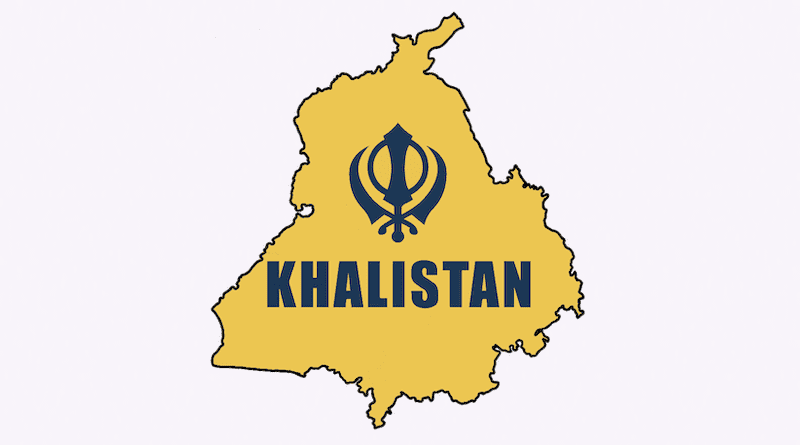Khalistan Referendum: India’s Position Challenged On Punjab’s Independence
The Global Khalistan Referendum has seen the active participation of thousands of Sikh men and women worldwide, who cast their votes under the supervision of the independent Punjab Referendum Commission. This is an analysis of the role of the commission and the commissioning organization, Sikhs for Justice, a pro-Khalistan nationalist group. The establishment of the independent Punjab Referendum Commission reflects the commitment to ensuring a transparent and impartial voting process. The commission oversees the organization and execution of the referendum voting, with a focus on maintaining fairness, accuracy, and adherence to democratic principles. The Punjab Referendum Commission’s primary objective is to oversee the worldwide referendum voting for the creation of Khalistan. It ensures the proper functioning of polling stations, monitors the voting process, and addresses any concerns or irregularities that may arise. The commission’s responsibilities also include safeguarding the integrity of the voting process.
Sikhs for Justice is a pro-Khalistan nationalist group that has taken the initiative to commission the Global Khalistan Referendum. Sikhs for Justice, which has been banned in India since 2019, aims to garner support for the creation of Khalistan and advocates for the rights of the Sikh community. It has played a key role in mobilizing Sikh populations globally, raising awareness about the referendum, and facilitating the voting process. The legitimacy of the independent Punjab Referendum Commission and Sikhs for Justice is mired in controversy. While the Indian government and some international bodies question the legality and recognition of the referendum, proponents argue for the importance of giving Sikhs a platform to express their aspirations through a democratic process. The Global Khalistan Referendum and the involvement of an independent commission present challenges for the Indian government. Analyzing the referendum’s impact requires considering various factors, such as the number of participants, the diaspora’s engagement, the global response, and the subsequent implications for the Khalistan movement. Understanding the referendum’s significance and its potential consequences contributes to a comprehensive examination of the ongoing developments.
The independent Punjab Referendum Commission and Sikhs for Justice have facilitated the Global Khalistan Referendum, enabling thousands of Sikh men and women to participate in the democratic process of expressing their aspirations. The establishment of the commission and the involvement of Sikhs for Justice highlight the determination of those advocating for Khalistan. The outcome of the referendum, the response from the Indian government, and international reactions shapes the future discourse surrounding the demand for Khalistan.
The demand for Khalistan, an independent Sikh state, has garnered attention and support from various Sikh communities worldwide. This article examines the growing global support for the liberation of Punjab from Indian occupation, highlighting the viewpoints of the 31,000 Sikhs who participated in the Khalistan Referendum amid stiff resistance from the Indian government. The Khalistan Referendum served as a platform for Sikhs to express their desire for self-determination and sovereignty. Despite facing resistance from the Indian government, the participation of 31,000 Sikhs underscores the importance and urgency of addressing their aspirations.
Understanding the historical context is crucial in comprehending the demand for Khalistan. The Sikh community has faced various challenges, including the 1984 anti-Sikh riots and subsequent human rights abuses. These incidents, coupled with a sense of cultural and religious identity, have fueled the call for a separate Sikh homeland. The Sikh diaspora plays a significant role in advocating for Khalistan. Sikh communities worldwide have actively engaged in raising awareness, organizing protests, and lobbying international bodies to support the cause. Their efforts have contributed to the growing global support for the liberation of Punjab. The issue of human rights violations in Punjab has drawn attention from human rights organizations and activists worldwide. Advocates argue that an independent Khalistan would address these concerns and ensure the protection of Sikh rights. This perspective has garnered support and solidarity from global human rights activists and organizations.
The demand for Khalistan has implications for international relations, particularly between India and countries with significant Sikh populations. Some nations, while respecting India’s sovereignty, have acknowledged the aspirations of Sikhs and expressed their concerns regarding human rights violations in Punjab. The complexities of managing diplomatic relations amid growing support for Khalistan pose challenges for the involved parties.
The Khalistan Referendum, despite facing resistance, has brought the demand for a separate Sikh state to the forefront of global discussions. The participation of 31,000 Sikhs in the third phase of voting in Sydney and the growing global support for the liberation of Punjab indicate the significance of addressing the aspirations of the Sikh community. Understanding the viewpoints of those advocating for Khalistan is crucial in fostering dialogue, and a peaceful resolution to this complex issue.
The notion of greater Punjab refers to a territory that expands beyond the current borders of the Indian state of Punjab, encompassing areas with significant Sikh populations. The idea stems from the desire to unite Sikhs and create a cohesive homeland it advocates for greater Punjab drawn upon the cultural and historical heritage of the Sikh community, emphasizing the shared linguistic, religious, and cultural ties among Sikhs residing in different regions. The call for Khalistan and the creation of Greater Punjab are rooted in the pursuit of socio-political autonomy. Proponents argue that an independent state would provide Sikhs with self-governance, enabling them to shape their own political, social, and economic systems in alignment with their values and aspirations.

